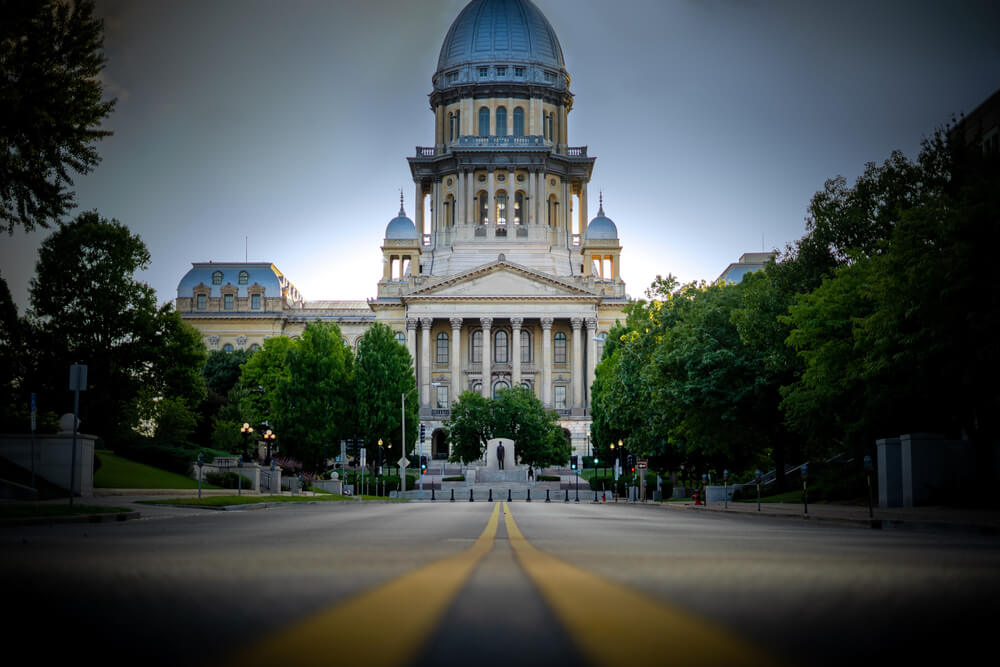Even with Gov. Pat Quinn shunning the idea of legalizing Internet gambling, at least one Illinois lawmaker is trying to find a path for legislation.
Quinn has shot down several attempts at gambling expansion in the state, but indicated he could support a current bill with a few exceptions. He believes the idea of online gambling was slipped into the measure at the last-minute and it needs further review.
Future Outlook of Online Poker in Illinois – Estimated date of legalization: 2018-2019 The following graph tracks our expected legislation of online poker in Illinois on a state law level. It is currently already legal on a Federal level. This graph monitors the current rise or fall of expected legalization. When legalized online poker launches in Illinois – which could be up to a year from the passage of a new law – there will be licensed online poker providers that partner with casinos to offer. Technically, there is no legal online poker Illinois supports, as there is no law that has been put into place to legalize online poker action throughout the state. However, there is also nothing on the books to make poker illegal either, which means that online poker throughout Illinois exists in something of a legal gray area. As the matter stands, online poker and online casino gambling are not legal or illegal in Illinois. After the Department of Justice said such gaming could be regulated in an intra-state manner, many American states have passed required legislation. Illinois has not considered an online poker bill or online casino bill so far. Despite there being more than 800 pages to the new gambling law passed by Illinois’ legislature at the weekend, there is no room for online poker. Due to Illinois’ legislative session coming to an end last Friday, it has been a busy past couple of days in Springfield.
Senate President John Cullerton is expected to wipe online gaming from the current legislation and push it as a separate issue, according to the State Journal-Register.
In several attempts to bring more casino revenue to the state, legislators have tweaked the language of an expansion bill. The latest includes a ban on campaign contributions from the gaming industry and sets aside funds for education, as Quinn requested.
While three states—Delaware, New Jersey and Nevada—have legalized online poker, many gaming industry leaders point to a need for liquidity to keep games afloat. Interstate compacts, which allow for shared resources in states where online poker is legal, could ensnare a larger group of gamblers.
While there’s slim chance of Illinois passing online gaming legislation soon, having lawmakers analyze the issue separately could help sway Quinn, and the state’s population of 13 million would certainly boost the US player pool.
Illinois Online Poker Law
Like a train hauling cattle through an ancient Chicago rail yard, legal online poker is inching its way toward implementation in Illinois. But that train has a few stops to make before it gets to the end of the line, where people can play online poker from their own homes all across the state of Illinois.
In 2013, Senate President John Cullerton introduced a gambling expansion bill that would increase the number of casinos in Illinois by five. It also included a sweeping online gambling bill that, if passed, would have made online gambling, including online poker, legal.
Getting people to agree with any type of gambling expansion is a lot like feeding them pills. That pill was way too big even for the moderate progressive Illinois General Assembly and its liberal governor Pat Quinn. Quinn publicly expressed his reservations about online casino gambling. Almost immediately, the online gambling portions of the bills were stripped. The bill died anyway, thanks to infighting as to where the proceeds from gambling expansion would go.
Illinois is facing both education- and pension-funding crises. Once all the backroom negotiations are done — the 2013 bill was somewhat rushed, and Cullerton’s colleagues felt it was sprung on them, particularly the online-gambling components — casino gambling will occur in Illinois.
That’s the first stop, and it should pass in 2014. Chicago should have a major card room and casino sometime in 2015, and Illinois would have four other casinos around the state. This will improve its poker community drastically. For now, the state only has a few dozen legal poker tables. Compare this to Pennsylvania, which has about the same number of residents, but supports more than 250 tables.
Cullerton’s bill called for the state’s lottery system to run online games, including poker. A separate bill that also died in committee in 2013 would have allowed people to play the lottery through the Internet.
Those are called baby steps. As other states surrounding Illinois begin to go live, look for Illinois to move ahead with online poker. Cullerton, who is one of the most powerful members of the General Assembly, promised to break out the online gambling portion of the bill and introduce it separately in 2014.
When Will Online Poker be Legal in Illinois?
Although an online poker bill is off the legislative table for 2013, expect a standalone online poker bill to be introduced and passed by its General Assembly by 2015. However, it could be as late as 2016, depending on how fast other states act, and how desperate the state’s officials are to fill in spending gaps. But it will almost definitely happen.
How Big is Illinois’s Online Poker Market?
With 12.8 million residents, Illinois is the fifth-most-populous state. With about 8.6 million people over the age of 21, Illinois’s potential online-poker market sits at about 860,000 (recent market studies suggest about 10 percent of the population played real-money poker before Black Friday).
This puts Illinois in the same category as Pennsylvania and Florida, making all three states some of the most lucrative online poker markets in the world. All the residents can do at this point is … wait.
Recent Action
